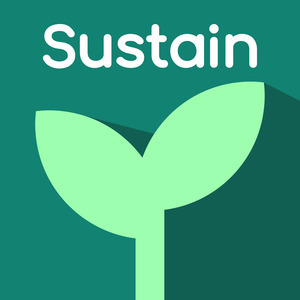Episode 103
Samuel Wein on OpenMS and Mass Spectrometry
January 7th, 2022
29 mins 50 secs
About this Episode
Guest
Samuel Wein
Panelists
Richard Littauer | Justin Dorfman
Show Notes
Hello and welcome to Sustain! The podcast where we talk about sustaining open source for the long haul. On today’s episode, we are very excited to have as our guest, Samuel Wein, who is a core developer and Executive Chairman of the OpenMS Foundation, a Post Doc at University of Tuebingen in Germany, and the head of a software consultancy specializing in analysis of RNA using Mass Spectrometry. Samuel fills us in on OpenMS and Mass Spectrometry and how he’s trying to make it better and expand it. He explains more about the governance process, how the funding process is going, training programs he’s done, and an internship program in the works to get more diversity. Samuel shares some great groups to get involved in the open source projects sciences area, and what he would like to change with OpenMS. Go ahead and download this episode now to find out more!
[00:02:14] Samuel is a scientist, so we find out how he ended up being a coder.
[00:03:27] Samuel explains OpenMS and Mass Spectrometry, and Justin wonders if this was instrumental in the mRNA research from Moderna and the other place that Pfizer teamed up with.
[00:06:47] Justin wonders how many times Samuel has been trying to get recruited from companies, such as Moderna, since they are probably looking for people like Samuel, and what’s keeping him away from them.
[00:08:14] Richard wonders what the governance process was like.
[00:11:09] Samuel has three partnerships for funding right now and Justin wonders if they are his go-to or if he needs to get more funding from different partners.
[00:13:08] Richard asks Samuel if he can talk about how he’s keeping the project from ending up bending the corporate interest and what it looks like for him.
[00:14:29] Justin wonders what other revenue streams Samuel has besides his donors and grants and if he has any training programs that he’s put together.
[00:17:34] Besides documentation, Richard is curious to know if Samuel could think of looking at his organization and then the wider field as a whole of really improving JEDI work, and if there’s anything he’s working on besides that.
[00:20:00] Samuel explains how people can get involved and what was helpful for him.
[00:22:17] We find out what Samuel is interested in learning and changing, as well as other things he’s interested in doing with OpenMS.
[00:24:07] Samuel suggests some groups that have useful to him to join, such as Open Bio, EuBIC-MS, and HUPO PSI.
[00:25:45] Find out where you can follow Samuel on the internet.
Quotes
[00:08:19] “My experience with scientific projects developed in labs is that they unfortunately tend to have a lifecycle that is contingent upon the career path of the core developer.”
[00:08:45] "There are issues with sustainability and maintainability once the original developer has left.”
[00:09:39] “[On community organizing in OSS] It’s all volunteer, it’s all passion projects, and you need to steer people towards their passions.”
[00:16:20] “We’re looking for a Community Manager.”
[00:22:41] “I would like to convince more scientists of the importance of choosing their software based on it’s openness.”
Spotlight
- [00:27:23] Justin’s spotlight is BioJS.
- [00:27:56] Richard’s spotlight is _The Wheel of Time _books by Robert Jordan.
- [00:28:45] Samuel's spotlight is Anathem by Neal Stephenson.
Links
- SustainOSS
- SustainOSS Twitter
- SustainOSS Discourse
- Samuel Wein PhD Linkedin
- Samuel Wein GitHub
- OpenMS
- sam@samwein.com
- Otakon
- Open Bioinformatics Foundation
- EuBIC-MS (European Bioinformatics Community for Mass Spectrometry)
- HUPO-PSI (HUPO Proteomics Standards Initiative)
- BioJs
- The Eye of the World: Book One of The Wheel of Time by Robert Jordan
- Anathem by Neal Stephenson
Credits
- Produced by Richard Littauer
- Edited by Paul M. Bahr at Peachtree Sound
- Show notes by DeAnn Bahr Peachtree Sound
